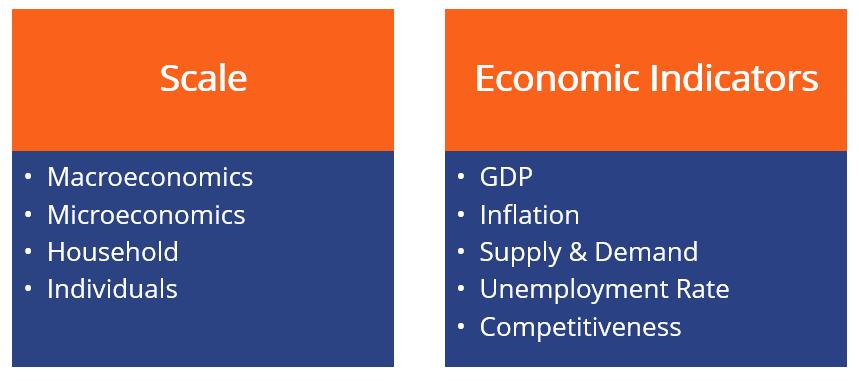📚 Unlock the World of AI and Humanity with These Two Free Books! 🚀
Dive into the thrilling realms of artificial intelligence and humanity with "The ECHO Conundrum" and "Awakening: Machines Dream of Being Human". These thought-provoking novels are FREE this week! Don't miss the chance to explore stories that challenge the boundaries of technology and what it means to be human.
Read More & Download
PESTEL analysis is a crucial framework used to evaluate the macro-environmental factors that can influence a business or project. It provides a comprehensive overview of the external influences that might affect an organization’s operations, allowing for strategic planning and risk management. Understanding these external factors allows businesses to adapt, mitigate risks, and capitalize on opportunities within their operating environment.
 Development Economics – Growth Chart
Development Economics – Growth Chart
Political Factors
Political factors encompass government policies and regulations, political stability, and international relations. These factors can significantly impact businesses by influencing trade policies, taxation, and the overall business environment. For example, changes in government regulations regarding environmental protection can significantly affect industries like manufacturing and energy. Similarly, political instability in a particular region can disrupt supply chains and create uncertainty for businesses operating in that area.
Economic Factors
Economic factors include economic growth, inflation, interest rates, exchange rates, and unemployment levels. These factors influence consumer spending, investment decisions, and overall economic activity. For instance, a recession can lead to decreased consumer spending, impacting businesses reliant on discretionary income. Conversely, periods of economic growth can create opportunities for expansion and increased profitability. Monitoring and understanding economic indicators is essential for making informed business decisions.
Social Factors
Social factors involve cultural trends, demographics, lifestyle changes, and societal values. These factors shape consumer preferences, demand for specific products and services, and the overall market landscape. For example, increasing health consciousness among consumers has led to a surge in demand for organic food and fitness products. Understanding social trends enables businesses to tailor their offerings to meet evolving consumer needs and preferences.
Technological Factors
Technological factors encompass advancements in technology, automation, research and development, and the rate of technological change. These factors can disrupt industries, create new markets, and influence the way businesses operate. The rise of e-commerce, for example, has revolutionized retail, forcing traditional brick-and-mortar stores to adapt or risk obsolescence. Staying abreast of technological advancements is crucial for remaining competitive and capitalizing on new opportunities.
📚 Unlock the World of AI and Humanity with These Two Free Books! 🚀
Dive into the thrilling realms of artificial intelligence and humanity with "The ECHO Conundrum" and "Awakening: Machines Dream of Being Human". These thought-provoking novels are FREE this week! Don't miss the chance to explore stories that challenge the boundaries of technology and what it means to be human.
Read More & Download
Environmental Factors
Environmental factors involve climate change, natural disasters, environmental regulations, and sustainability concerns. These factors are becoming increasingly important for businesses as consumers and investors prioritize environmental responsibility. Companies that adopt sustainable practices, reduce their carbon footprint, and comply with environmental regulations are better positioned for long-term success. Ignoring environmental concerns can lead to reputational damage and financial penalties.
Legal Factors
Legal factors include employment laws, consumer protection laws, antitrust laws, and intellectual property rights. These factors define the legal framework within which businesses operate and can have significant implications for their practices and strategies. For example, changes in labor laws regarding minimum wage can affect a company’s operating costs. Understanding and complying with legal requirements is essential for avoiding legal disputes and maintaining a positive business reputation.
 Development Economics – Scale and Economic Indicators
Development Economics – Scale and Economic Indicators
Conclusion: Leveraging PESTEL Analysis for Strategic Decision-Making
PESTEL analysis is a valuable tool for understanding the external environment and its potential impact on business operations. By systematically analyzing political, economic, social, technological, environmental, and legal factors, businesses can identify opportunities, mitigate risks, and develop strategies that align with the prevailing macro-environmental conditions. Conducting regular PESTEL analyses allows businesses to stay ahead of the curve, adapt to change, and make informed decisions that contribute to long-term success. This proactive approach to understanding the external environment is essential for navigating the complexities of the modern business world.
📚 Unlock the World of AI and Humanity with These Two Free Books! 🚀
Dive into the thrilling realms of artificial intelligence and humanity with "The ECHO Conundrum" and "Awakening: Machines Dream of Being Human". These thought-provoking novels are
FREE this week! Don't miss the chance to explore stories that challenge the boundaries of technology and what it means to be human. Read More & Download

